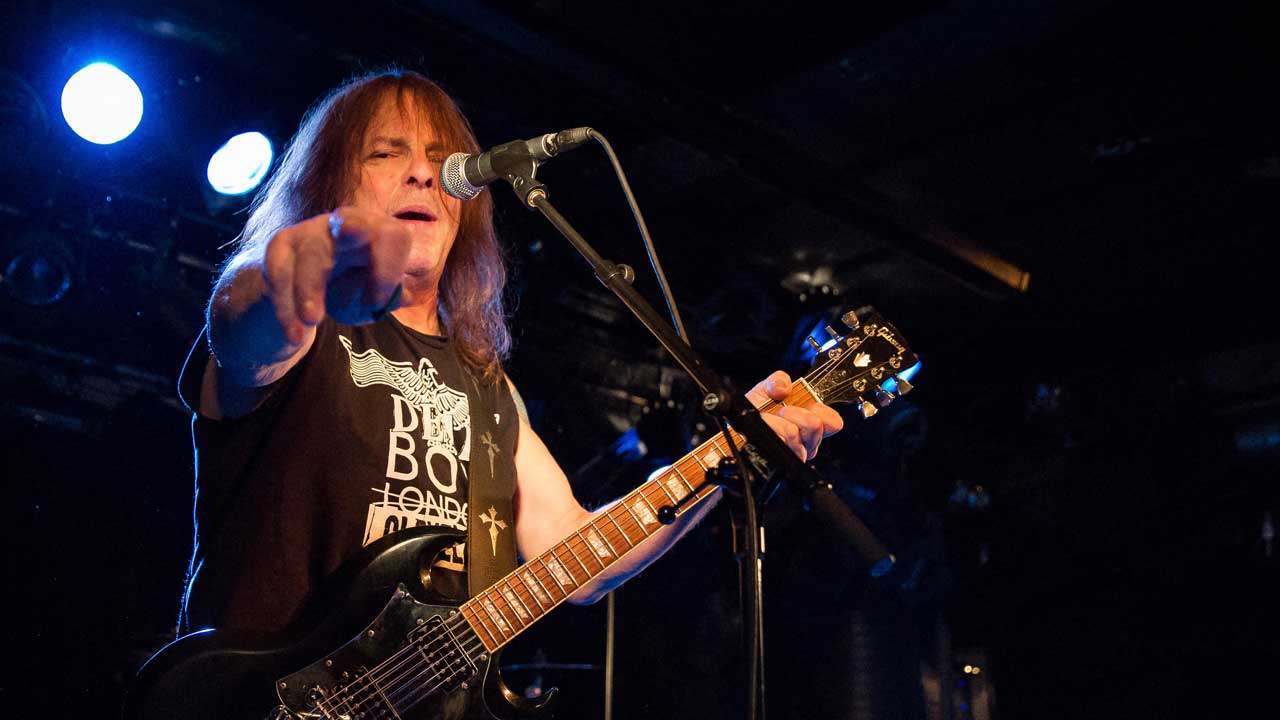Korn: “Sometimes I think, ‘Why did we survive?’"
Death, disease, paranoia and an absent Fieldy… how Korn’s new album Requiem helped them finally turn a corner
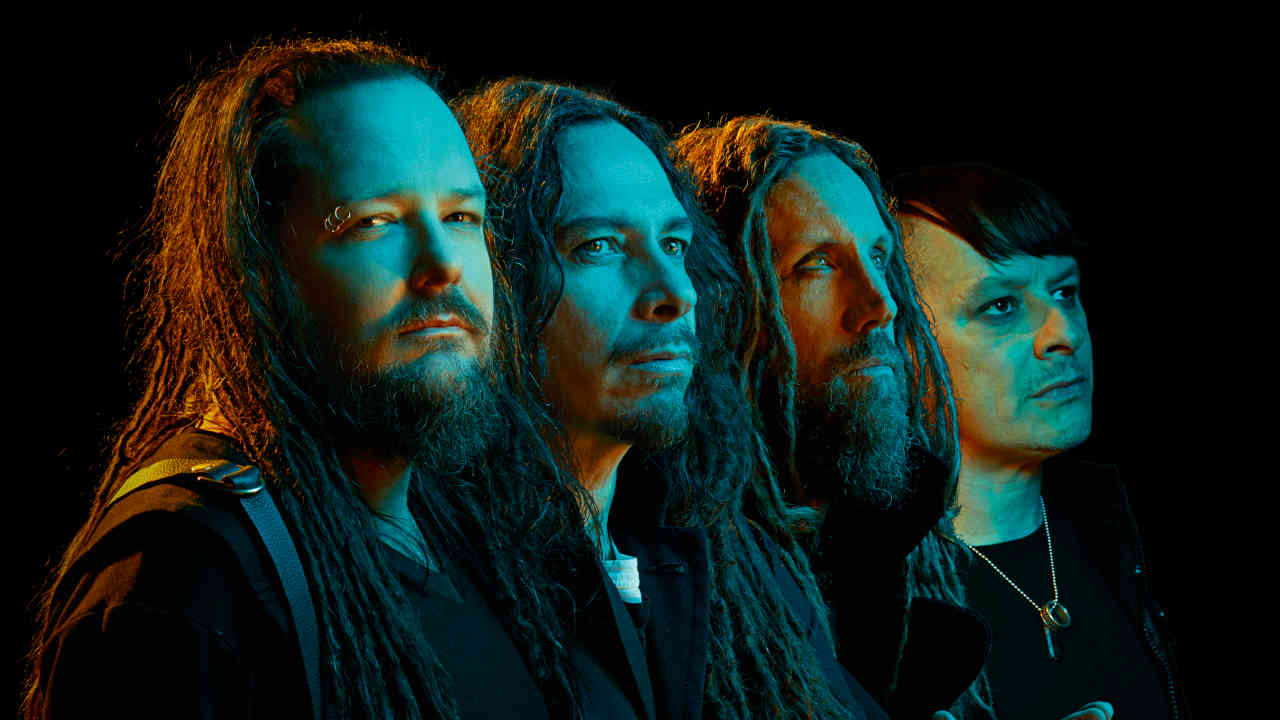
Select the newsletters you’d like to receive. Then, add your email to sign up.
You are now subscribed
Your newsletter sign-up was successful
Want to add more newsletters?

Every Friday
Louder
Louder’s weekly newsletter is jam-packed with the team’s personal highlights from the last seven days, including features, breaking news, reviews and tons of juicy exclusives from the world of alternative music.

Every Friday
Classic Rock
The Classic Rock newsletter is an essential read for the discerning rock fan. Every week we bring you the news, reviews and the very best features and interviews from our extensive archive. Written by rock fans for rock fans.

Every Friday
Metal Hammer
For the last four decades Metal Hammer has been the world’s greatest metal magazine. Created by metalheads for metalheads, ‘Hammer takes you behind the scenes, closer to the action, and nearer to the bands that you love the most.

Every Friday
Prog
The Prog newsletter brings you the very best of Prog Magazine and our website, every Friday. We'll deliver you the very latest news from the Prog universe, informative features and archive material from Prog’s impressive vault.
Korn guitarist James 'Munky' Shaffer is reminiscing about the past. It's been almost 30 years since his band spearheaded the game-changing nu metal movement, but sometimes he can't help but marvel at how close to destruction he and the band came.
“Around the time of my father’s death, I had severely slipped into bad drug use and alcoholism," he says. "I had lost both my parents now, and I didn’t want to deal with it, didn’t want to face it. I had a beautiful house by the beach, and I basically barricaded myself in, with all the windows blacked out, and turned music up really loud in every room. It was a very quiet neighbourhood until I moved in, so my neighbours must have been like, ‘This motherfucker, we can’t take this anymore…’
“So, one day this policeman knocked on my door, at like 6am, as the sun was rising. He asked if I had any guns in the house, and I responded, ‘If I do have any guns, you will be the first to know’, and slammed the door in his face. And about 15 minutes later, I had a SWAT team outside my house…
“They got me out and arrested me, and they knew I was not OK: they could obviously see, like, ‘OK, not only is he high, and drunk, but he’s mentally unstable.’ I woke up handcuffed to a hospital bed in a psychiatric ward, on hold for 72 hours. And that was the moment where I was like, ‘I can’t go on like this…’”

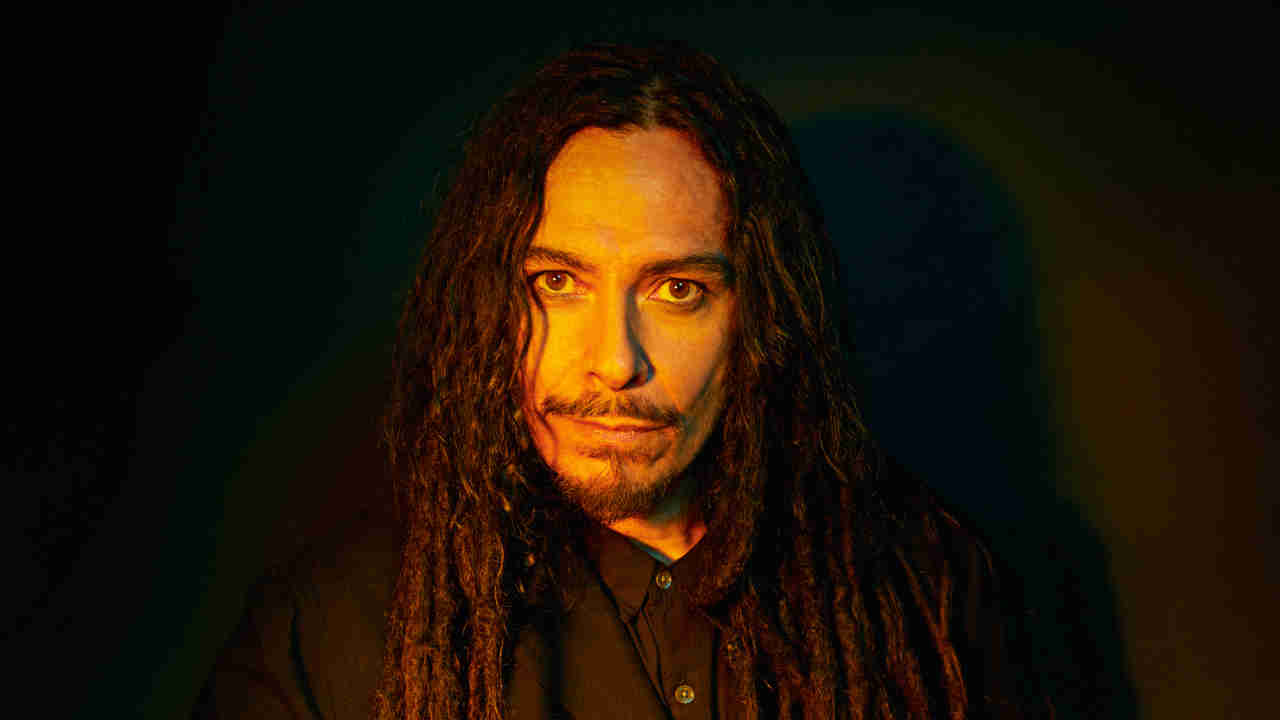
It’s 11pm in Los Angeles, in the middle of the second week of January, and James ‘Munky’ Shaffer is in his stylish downtown studio/man cave, all exposed red brickwork and gleaming chrome pipes, a safe, tranquil space to which Korn's 51-year-old guitarist gravitates whenever what he describes as the “chaos” of family life with three young children threatens to become overwhelming. As he shares the anecdote above, one is reminded that his use of the word “chaos” here is relative, obviously.
“In the 90s, our attitude was, ‘Fuck tomorrow, we’re living today!’” the guitarist admits, laughing warmly as he settles in for a 30-minute Zoom call. “Sometimes I can’t believe… wait, let me knock on this chair, because it’s wood… sometimes I can’t believe we’re alive. If my neighbours hadn’t called the cops on me that day, or maybe if I’d been living out on my own in acres of land instead of by the beach, I’d probably be dead.”
“We were definitely not smart back then,” agrees Brian ‘Head’ Welch, Munky’s friend since “eighth or ninth grade… basically forever”, and the co-creator of a game-changing, signature guitar sound that redefined heavy music in the mid-to-late 1990s. “We thought the Mötley Crüe story was a blueprint for life, and we followed it religiously. When you’re young and dumb, you can live like that for a time, but sooner or later it will ruin your life. And it did, it surely did.
Sign up below to get the latest from Metal Hammer, plus exclusive special offers, direct to your inbox!
“But we all got a second chance,” Head says quietly. “And sometimes I think, why were we the lucky ones? Why did we survive? Because if you think about Slipknot, and Avenged Sevenfold, and Deftones… so many bands have lost someone. And I’m just grateful, so very grateful, to see my friends healthy and happy now, still doing what we love. It’s amazing.”
Head too is in Los Angeles tonight, though not by choice. Korn’s senior guitarist, just 13 days older than his lifelong friend, tested positive for Covid-19 over the holiday season and is currently self-isolating in a hotel room, 2,000 miles from his family home in Nashville, Tennessee, which he hasn’t seen since December 20 last year.
He rates his peak Covid discomfort level at “maybe six out of 10”, and is still aching all over, but credits aspirin and the fact that he’s vaccinated for safeguarding him from the most debilitating effects of the virus.
Ironically, were it not for the pandemic, it’s unlikely that Korn’s guitar team would be talking to Hammer today, sharing their thoughts on the Bakersfield band’s 14th studio album. Recorded in lockdown in their own hometown studio with producer Chris Collier, Requiem is the stirring sound of a band reborn, revitalised and renewed, a bold, fearless, conscious stride away from the pain and darkness of 2019’s The Nothing into light, into life.
Sitting in front of their laptop cameras in their respective dimly lit rooms, Munky and Head’s faces radiate joy and gratitude as they speak of the album’s creation, and the benefits it has already brought to their lives, and those of their bandmates. If a requiem is defined as a mass or musical composition for the dead, then Korn’s latest album can be viewed as both a remembrance of past struggles and an exaltation celebrating joy and hope for what lies ahead. As their band creeps towards its 30th anniversary, it’s a manifesto urging the embrace of possibilities, where before Korn often seemed to wish for oblivion and the void.
“The Nothing was a very, very heavy record,” says Head, “coloured by death and grief and pain. But you can’t stay in the darkness forever, you have to move forward, and grow, and live and love again. We’ve suffered, and the world has suffered, but now we’re stepping into the light.”
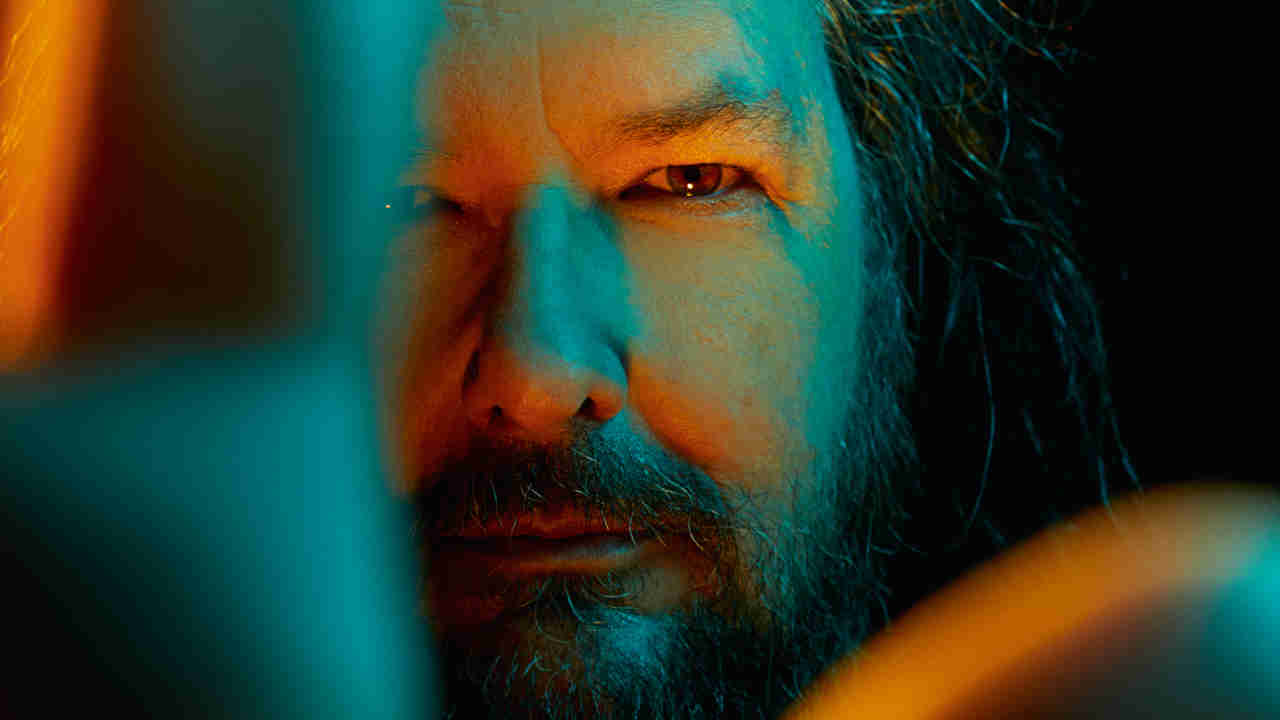
Onstage with his band at the Save Mart Center in Fresno, California on March 1, 2020, Jonathan Davis had a sudden, vivid premonition.
“I had this fucking vision, like, this is the last show I’m going to be doing for a long fucking time. That shit just popped into my head, like, I was looking out at the crowd thinking, ‘Man, I don’t think I’m going to be doing this for a while, what the fuck?’ And then we got home, and we were supposed to be going to Japan, and we got the call, like, ‘You’re not going on tour.’ And that’s when the shit started to get crazy.”
Bathed in red light, his hair tied up in a man bun, and his chest tattoos peeking above a black v-neck t-shirt, Jonathan Davis is sitting in front of a wall of framed art and family photographs in his Los Angeles home. It’s almost midnight on America’s Pacific Coast, and Korn’s frontman is smiling and animated, rocking back and forward in his chair, as he stares straight into his webcam through black-framed spectacles.
When it’s suggested to him that this is a late hour to be conducting an interview, he chuckles, and says, “I’ve always been drawn towards the night rather than the day. Since he started using a CPAP machine to aid his nocturnal breathing, Jonathan says he’s been sleeping for just five hours a night, and feels “amazing.”
“I go to bed at five, six, seven in the morning, sleep for five hours, and then I’m up, writing music, playing games, whatever. It’s easier to do things at night. I don’t like being around people! Ha ha ha!”
That laugh speaks volumes about Jonathan Davis in 2022. In conversation today, both Head and Munky speak of their band’s frontman living “a new chapter” in his life, and that’s an assessment with which the 50-year-old vocalist concurs. “I’m fucking happy as fuck! I’m in a way better fucking place,” he says.
“I’ve finally found a place in my life where I can face my demons, and confront them, and work them out right then, and not let them fuck with me for a long period of time. I know some more shit is going to be thrown at me, I’m gonna get another fucking curveball, we all do in life, and it’s gonna put me right back where I was, but I’m hoping that I’ll be able to handle it. And I’m going to enjoy everything while I can.”
Asked what’s changed to bring about this new positive mental attitude in his life, Jonathan repeats the question thoughtfully before responding.
“I would say after everything that went down [and here the singer is referring to the death of both his mother, and his ex-wife Deven, the mother of his two youngest children] I met an amazing woman that’s fucking taken care of me, and I started a relationship that’s healthy, and I know my children [Pirate and Zeppelin] are safe.
"There was a lot of shit that I really don’t want to talk about, a lot of bad shit going on in my life, and I was trying to keep it all together: the band, my kids, all the crazy shit. Now that that has gone and I know everyone’s good I think I’m finally in a place where I’m not in a constant state of fucking flight or fight and I can think and I can create… And then right when this was happening – boom – the pandemic hit, and oh my God, I’m back to I’m freaking out that I’m going to fucking die.”
“But” – and here Jonathan lifts a finger to his temple – “I think up here I’m a lot more healthy.”
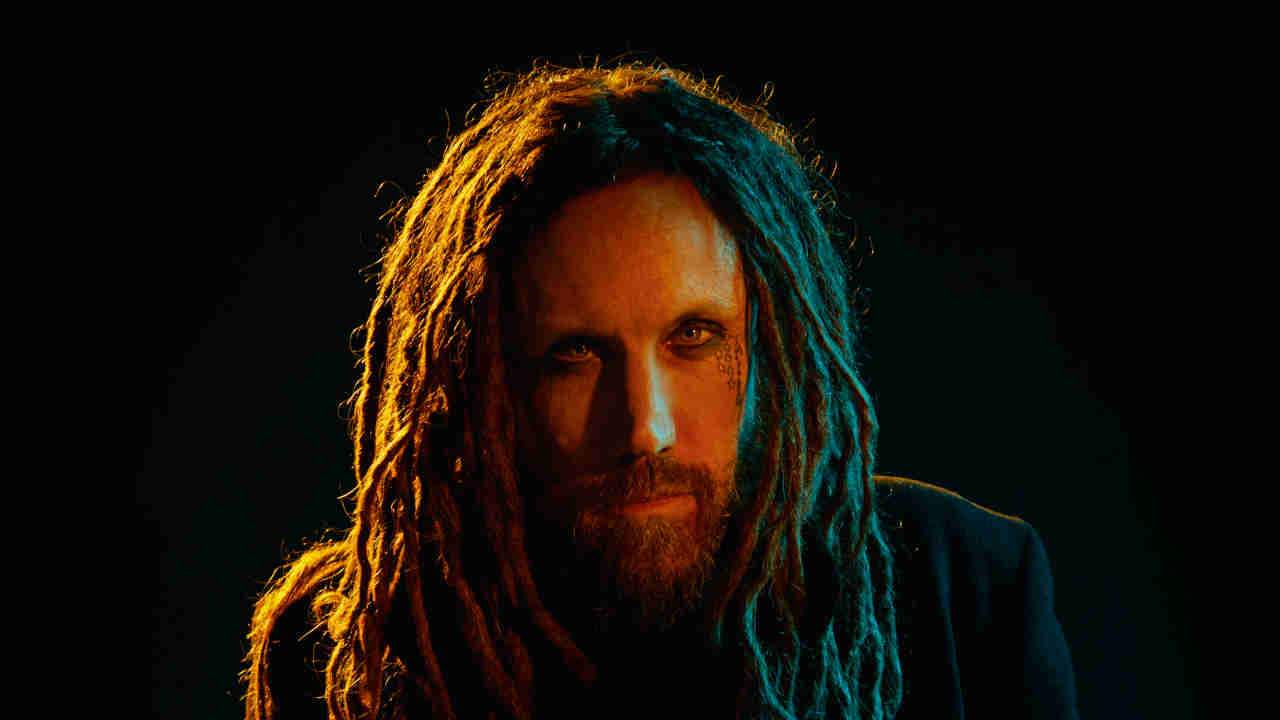
The global lockdown enforced in the spring of 2020 to seek to minimise the transmission of the potentially fatal Covid-19 impacted upon the members of Korn in wildly contrasting ways.
For Head, the lay-off presented an opportunity to move his family into a new property in Nashville he had purchased in December 2019: “I had friends that lost jobs [as a result of the pandemic] and they came over and built me a movie theatre room, and we painted upstairs, and downstairs, and made the house a home,” he says proudly. “It was really relaxing.”
For Korn’s drummer Ray Luzier, a resident in nearby Franklin, Tennessee since 2014, and a touring musician since 1997, the downtime offered a chance to devote himself to parenting, “a blessing” he says, drinking a cup of Korn Koffee as he dials in from his drum room. “I have two little kids and it was just awesome to take them to school every day, put them to bed every day, play basketball with them. That was a beautiful thing.”
The drummer also took the opportunity to play on near neighbour/Mötley Crüe guitarist Mick Mars’s solo album, and record with late Led Zeppelin drummer John Bonham’s grandson Jager, Mr. Big bassist Billy Sheehan, King’s X frontman Doug Pinnick, and ex-Dokken guitarist George Lynch.
Over in California, however, Munky and Jonathan were coping rather less well with the psychological effects of the shutdown.
“I really didn’t do well with it,” Munky admits. “Mentally, I was not OK. I was struggling, in shock. It was like every little piece of my normal life was slowly being peeled away. There’s a picture of me on my social media page, where I’m wearing goggles, and I’m all covered up and I look like a Stormtrooper, and I was just going out for milk!”
“I was freaking the fuck out,” says Jonathan. “We locked down the house and I didn’t even leave the house to get food: my sister would go out all masked up and get us food. I was scared shitless because I’m an asthmatic, and I was afraid it would get my lungs and all that shit. It was scary. I wanted to tour more, I wanted to show the world this amazing record I just did, a record of me grieving and healing and going through all that shit. So I was kind of pissed that Covid fucked it up.”
Perhaps unsurprisingly then, it was Munky and JD who pressed for the band to regroup in Bakersfield to start making music again. They went into the studio in June 2020.
“I was one of those people that were like, ‘I’m gonna take up a new hobby!’” Munky laughs. “I’m gonna start an online singing course, to make my backup vocals killer! I’m gonna play guitar every day! That stuff was fun, it occupied my mind for a while, but it didn’t fulfil that need to be playing music with my friends.
"And when it came down to it, I was like, ‘OK, what would really make me happy would be to sit in a room and just make some songs.’ In fact, I didn’t even fucking care if we wrote anything, I just wanted to be communicating musically with my friends instead of thinking about death, and this dark, ominous thing you can’t see which is bringing so much misery.”
“Music is healing, you know?” adds Head. “There was no pressure, and no timetable: we weren’t even really planning on making a record, we were just going to pretty much write songs and demo. But the songs just kept getting better and better. And so we just went for it.”
“We would work for 10 days each month, and you could feel the excitement,” says Munky. “Jonathan was in the room with us, humming melody lines or lyric ideas into his phone, and it was so much fun. I almost felt guilty actually, like, we’re having so much fucking fun in here, and there’s so much darkness out there. But we needed this.”
For a bridge between The Nothing and Requiem, one might look to The Darkness Is Revealing, track four on the band’s 2019 album, where Jonathan sings, ‘How does one start healing?’ The first single from the new album, Start The Healing, released back in November, finds him picking his way carefully through a lifetime of emotional damage on a quest for inner peace, his opening lyric ‘Do you really wanna come with me?’ at once an invitation and a warning of trying times ahead.
“What a perfect song to unleash the new record,” Head marvels today.
“Working together is like doing drugs for us now,” Jonathan said as the single was released in November. “We’re continuously chasing that first high.”
Reminded of this today, the singer laughs, and says, “See, every now and then I’ll do an interview and say something profound!”
“When things came crashing down with Deven dying, we were going to tour his [solo] Black Labyrinth record, and I was like, ‘Man, you know, take some time out, take all the time you need’,” says Ray. “And he goes, ‘No, I need to perform, or I’ll lose my mind, I will lose my shit.’ Music is the best therapy you can have, without taking a drug.
“And I’ll never forget on this record, Jon comes into the studio one day, and he had such a smile on his face and he goes, ‘I’m so happy right now. What am I going to sing about?’ And I was like, ‘Sing about happiness!’ It was so great to see him in that space, you know? There’s some really heavy songs on the record that are heavy emotionally, and he really impressed me with his performances. Obviously Munky and Head did great, but Jon’s on another level here.”
Amid this outpouring of love and respect and catharsis in the studio, there was an elephant in the room, however. Within a matter of weeks, it became apparent that Fieldy, Korn’s founding bassist, was struggling, self-medicating to a point where it was becoming an issue for other bandmembers.
An intervention was staged, and it was suggested that the bassist should step away from the process in order to address his problems. In June, the bassist issued a statement acknowledging that he had “personal issues that at times have caused me to fall back on some of my bad habits” and admitted that this had “caused some tension with the people around me”.
“It’s been suggested to me to take some time off to heal,” he wrote. “I’m going to respect what was asked of me and take that time… I’m thankful for all of your support, patience and understanding as we all have something that we deal with. Jonathan, Munky, Ray, and Head, I love you and I don’t want to bring any tension or bad vibes to the circle.”
Today, to their credit, the band don’t duck the topic when it is broached. “For his wellbeing and mental health, he needs to go focus on him,” says Head. “Everybody was like, ‘You need a rest, you don’t seem happy.’”
“I love Fieldy to death, he’s my boy,” says Jonathan. “That’s the reason why we did what we did. He needs to find that love for music again, and find why he lost it, and what’s ailing him so badly. I’ve been there, so I’m not talking shit, we’ve all had to go through it. This is his time to figure it out. And however long it takes, I hope he can figure it out. Because I don’t want to watch one of my best friends, my brother, die. And I don’t want the band to enable that.”
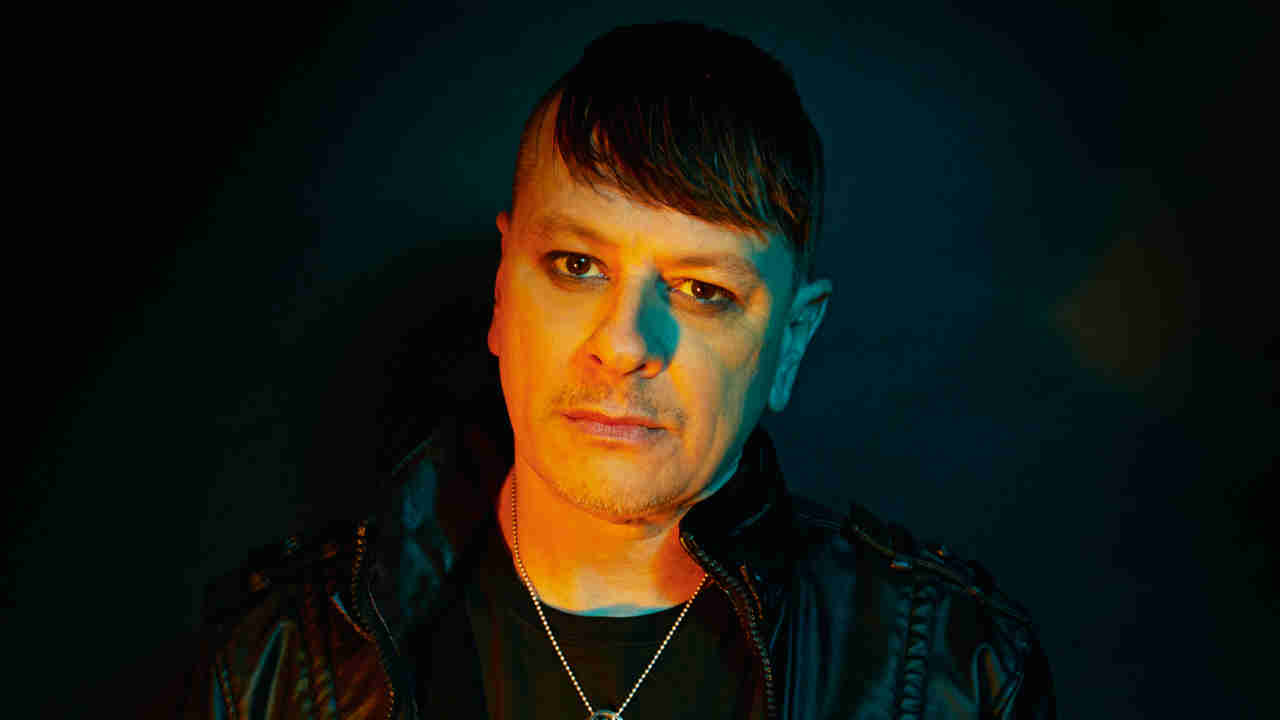
Since the completion of Requiem, life has not been entirely problem-free for Korn. On the road this summer, Jonathan tested positive for Covid on August 14, leading to the cancellation of six shows: when he returned to the stage, he performed sitting on a throne, with an emergency oxygen supply by his side. “I just wanted to get through it because I saw how happy people were to see live music,” he later admitted, “and I just didn’t wanna let anyone down.”
When Munky and Ray later contracted the virus too, replacements were drafted in, and the band played on. This is the new Korn, resilient, determined, unbreakable.
Ask Jonathan Davis how he spends his time now that he’s not carrying the weight of the entire world on his shoulders, and he laughs, and talks about his new “bad ass” airguns, with which he practises “sniper shit” in his backyard, sending tin targets spinning across the grounds.
But music remains his true passion. Asked if he could imagine life without Korn now, the singer’s reply is instant: “I can’t,” he says, shaking his head. “This is the outlet that keeps me sane. I’d be a weird, fucked-up fuck if it wasn’t for Korn. It’s been 27, 29, whatever, years and I’ve never got tired of this. I’m going to keep doing it until I can’t do it no more.
“After all the shit that’s happened down all the years, we’re still here,” he adds. “We were just five kids from Bakersfield in a little room, not knowing what the fuck we were doing, and we came up with music that hit so many people in the heart, and created a whole new sub-genre for metal, a whole new movement.
When Korn are finished, that’s what we’ll be remembered for, and that’s fucking incredible. And that magic is still there for us. And soon enough, we’ll be back on stage together, and the audiences will be there, and we’ll all come together and have a great big fucking party. We’re ready.”
Requiem is out nowvia Loma Vista. Korn play Download Festival in June

A music writer since 1993, formerly Editor of Kerrang! and Planet Rock magazine (RIP), Paul Brannigan is a Contributing Editor to Louder. Having previously written books on Lemmy, Dave Grohl (the Sunday Times best-seller This Is A Call) and Metallica (Birth School Metallica Death, co-authored with Ian Winwood), his Eddie Van Halen biography (Eruption in the UK, Unchained in the US) emerged in 2021. He has written for Rolling Stone, Mojo and Q, hung out with Fugazi at Dischord House, flown on Ozzy Osbourne's private jet, played Angus Young's Gibson SG, and interviewed everyone from Aerosmith and Beastie Boys to Young Gods and ZZ Top. Born in the North of Ireland, Brannigan lives in North London and supports The Arsenal.
